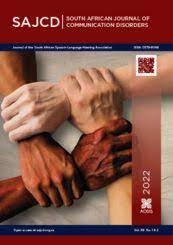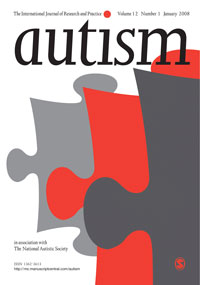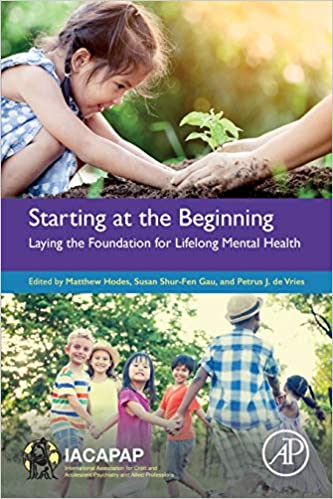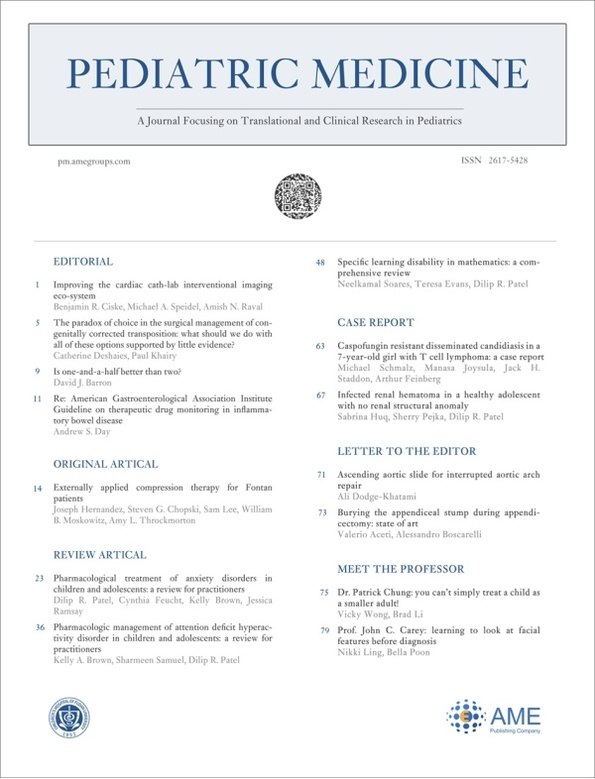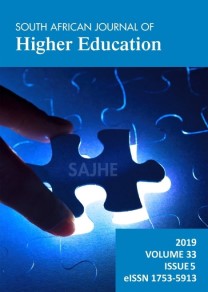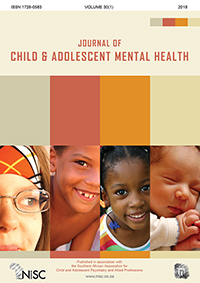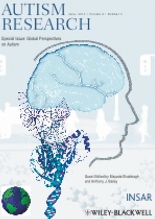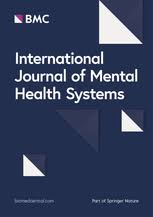2026
Nowack, S. K., Singal, N., Gibson, J. L., & Dawson-Squibb, J.-J. (2026). Qualitative approaches to developmental psychology: Negotiating power, ethics, and geographies when researching in South African schools for autistic children. Methods in Psychology. https://doi.org/10.1016/j.metip.2026.100226
In this paper, the authors highlight the importance of ethical research considerations at the intersectionality of autism and race. Based on their experiences of immersion in public preschool classrooms, they recommend four principles of inclusive research practices: 1) Making visible positionality in Southern-led collective scholarship, 2) Nourishing respectful collaborative partnerships with Southern organisations, 3) Building trusting relationships, and 4) Engaging in research as co-creation and dialogue. These principles provide a framework to help researchers navigate similar studies in Global South contexts to ensure the sharing of knowledge and materials in a collaborative and culturally sensitive manner when working with historically vulnerable and underrepresented communities.
2025
Dawood, Z., Sebolai, K., Ndlovu, M., Viljoen, M., Seris, N., Shabalala, N., de Vries, P., Franz, L., & Harty, M. (2025). Detecting change in a caregiver-mediated autism intervention using the Joint Engagement Rating Inventory. South African Journal of Communication Disorders, 72, (1).
https://doi.org/10.4102/sajcd.v72i1.1102
In this paper, the authors demonstrated that the Joint Engagement Rating Inventory (JERI) was a reliable and sensitive measure for detecting changes in caregiver and child joint engagement in the context of a caregiver-mediated intervention study. Thus, the JERI was shown, for the first time in an African context, to be a potential outcome measure for early autism intervention research.
 Chambers, N., Heunis, TM., Gardner-Lubbe, S. et al. Validation of the self-report quantified Tuberous Sclerosis Complex-Associated Neuropsychiatric Disorders Checklist (TAND-SQ). Orphanet J Rare Dis 20, 304 (2025). https://doi.org/10.1186/s13023-025-03642-2
Chambers, N., Heunis, TM., Gardner-Lubbe, S. et al. Validation of the self-report quantified Tuberous Sclerosis Complex-Associated Neuropsychiatric Disorders Checklist (TAND-SQ). Orphanet J Rare Dis 20, 304 (2025). https://doi.org/10.1186/s13023-025-03642-2
In this paper, the authors describe the validation of the TAND-SQ Checklist, a self-report, quantified checklist for tuberous sclerosis complex - associated neuropsychiatric disorders (TAND). The 33 items make up seven natural TAND clusters and an eighth cluster reflecting psychosocial difficulties in individuals with TSC and their caregivers. Scores reflecting these clusters were found to be reliable and valid when compared to relevant psychiatric diagnoses and standardised behavioural measures. Findings provide support for the use of the TAND-SQ in clinical decision-making for TAND management and in further research.
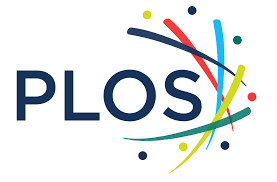 van Eeghen AM, Thiele EA, Amin S, Samanta D, Jansen AC, Stevens J, et al. (2025) Protocol for EpiCom: A phase 3b/4 study of behavioral outcomes following adjunctive cannabidiol for the management of tuberous sclerosis complex-associated neuropsychiatric disorders (TAND). PLoS One 20(6): e0324648. https://doi.org/10.1371/journal.pone.0324648
van Eeghen AM, Thiele EA, Amin S, Samanta D, Jansen AC, Stevens J, et al. (2025) Protocol for EpiCom: A phase 3b/4 study of behavioral outcomes following adjunctive cannabidiol for the management of tuberous sclerosis complex-associated neuropsychiatric disorders (TAND). PLoS One 20(6): e0324648. https://doi.org/10.1371/journal.pone.0324648
This protocol paper describes the project plan for the EpiCom (Epilepsy Comorbidities; NCT05864846; EU-CT, 2023-507426-17) study, a multicenter, open-label, phase 3b/4 study, with hybrid decentralized approach, which was designed in collaboration with patient advisory groups and healthcare professionals to evaluate behavioral and other outcomes following adjunctive CBD treatment in individuals with TSC-associated seizures. EpiCom will assess the changes in behavioral and other outcomes associated with TAND and seizure outcomes, including overall symptom severity and treatment retention, following adjunctive CBD treatment in individuals with TSC-associated seizures. The results will inform future studies evaluating pharmacotherapy for behavioral outcomes in similar populations.
Viljoen, M., Seris, N., Shabalala, N., Ndlovu, M., de Vries, P. J., & Franz, L. (2025). Adapting an early autism caregiver coaching intervention for telehealth delivery in low-resource settings: A South African study of the ‘what’ and the ‘why’. Autism, Autism, 29(5), 1246-1262. https://doi-org.ezproxy.uct.ac.za/10.1177/13623613241300774
In this paper, Viljoen and colleagues describe how and why an in-person cascaded task-sharing naturalistic developmental behavioural intervention was adapted for telehealth delivery in a low-resource context in South Africa. The Framework for Modification and Adaptations (FRAME) was used to document what changes were made, and the Exploration, Preparation, Implementation, Sustainment (EPIS) framework was used to describe the reasons for the changes. The team made 10 adaptations in response to unchangeable outer contextual factors and through identification of malleable inner contextual factors.
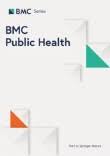 Mokitimi, S., Jonas, K., Schneider, M. et al. (2025). Where is Batho Pele? The perspective of child and adolescent mental health service users in the Western Cape Province of South Africa. BMC Public Health 25, 305. https://doi-org.ezproxy.uct.ac.za/10.1186/s12889-024-20662-y
Mokitimi, S., Jonas, K., Schneider, M. et al. (2025). Where is Batho Pele? The perspective of child and adolescent mental health service users in the Western Cape Province of South Africa. BMC Public Health 25, 305. https://doi-org.ezproxy.uct.ac.za/10.1186/s12889-024-20662-y
Mokitimi and colleagues report on a study that explored user perspectives about CAMHS in the Western Cape, one of the nine provinces of South Africa. Focus group discussions and semi-structured interviews were conducted with CAHMS users. Results revealed slow, inappropriate and unacceptable CAMHS at primary level of care with only one positive service initiative at primary care level. Only specialist CAMHS (tertiary level) were regarded as well-organised. Participants suggested numerous recommendations to improve CAMHS.
2024
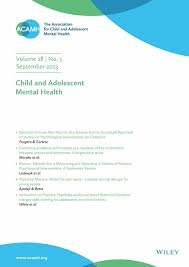 Pillay, S., Duncan, M. and de Vries, P.J. (2024), ‘We wait and we wait’—caregiver perspectives on autism spectrum disorder services in the Western Cape Province of South Africa. Child Adolesc Ment Health. https://doi.org/10.1111/camh.12704
Pillay, S., Duncan, M. and de Vries, P.J. (2024), ‘We wait and we wait’—caregiver perspectives on autism spectrum disorder services in the Western Cape Province of South Africa. Child Adolesc Ment Health. https://doi.org/10.1111/camh.12704
Dr Pillay and colleagues performed a qualitative study using focus groups to explore the perspectives of caregivers of children with autism waiting for school placement in the Western Cape Province of South Africa. The main theme that emerged was ‘We wait and we wait’. Caregivers expressed high levels of frustration with existing autism educational and other services. Perspectives about services were captured under three categories. The first category, ‘The costs of waiting’ describes the socioemotional, financial and time costs associated with having a child with autism wait for educational services. The second category ‘Barriers while waiting’ describes the attitudinal, structural, process and communication barriers experienced by caregivers while seeking services for their children. The final category ‘Expecting action’ describes attitudinal, service and policy expectations that caregivers felt could improve service delivery. Caregivers provided 10 recommendations for autism service improvements. Efforts to find solutions to providing services and support to children with autism waiting for educational services and their caregivers should be prioritized.
du Plessis, C., Hampton, L., & Harty, M. (2024). Enhanced Milieu Teaching in resource-constrained settings: Stakeholder-informed adaptation guidelines. South African Journal of Communication Disorders, 71(1) a989. doi:https://doi.org/10.4102/sajcd.v71i1.989
The goal of this study was to explore stakeholders’ perceptions of the contextual fit of Enhanced Milieu Teaching (EMT) for young children with developmental disabilities in a resource-constrained context and to identify adaptations to improve EMT’s contextual fit. Overall, stakeholders viewed EMT as an appropriate intervention in the South African context but that clinicians may need to adapt intervention materials and activities to be sensitive to families’ available resources, preferred activity routines and priorities. This article highlights the importance of engaging with stakeholders to determine the fit of NDBIs, like EMT, as they are implemented in new contexts. Based on these insights, stakeholder-informed adaptation guidelines are provided for improving the contextual fit of EMT in resource-constrained settings.
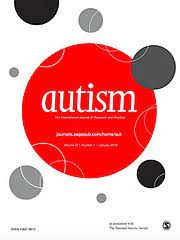 Chambers, N., de Vries, P. J., & Wetherby, A. M. (2024). Feasibility of the Autism Navigator® JumpStart to Coaching in Everyday Activities course in South Africa. Autism 28(9), 2232-2243. https://doi.org/10.1177/13623613231223784
Chambers, N., de Vries, P. J., & Wetherby, A. M. (2024). Feasibility of the Autism Navigator® JumpStart to Coaching in Everyday Activities course in South Africa. Autism 28(9), 2232-2243. https://doi.org/10.1177/13623613231223784
In this paper, Drs Chambers, de Vries and Wetherby describe the feasibility of an online training course for training non-profit staff in South Africa in an evidence-based intervention for young children with autism. Providers generally rated the course feasibility, acceptability and appropriateness very highly and made some suggestions that would improve relatability of the course content. There was a relatively high rate of course completion, which was not impacted by first language, education level, nor attitudes to implementing an evidence-based intervention suggesting a broad appeal to NPO providers in South Africa. Self-reported English language proficiency and education level did impact the number of times needed to pass some learner assessments. The online nature of the training was identified as a strength during the COVID lockdown restrictions.
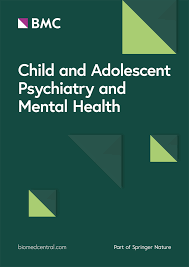 Abdalhai, K.A., Mokitimi, S. & de Vries, P.J. Child and adolescent mental health services in Khartoum State, Sudan: a desktop situational analysis. Child Adolesc Psychiatry Ment Health 18, 21 (2024). https://doi.org/10.1186/s13034-024-00707-1
Abdalhai, K.A., Mokitimi, S. & de Vries, P.J. Child and adolescent mental health services in Khartoum State, Sudan: a desktop situational analysis. Child Adolesc Psychiatry Ment Health 18, 21 (2024). https://doi.org/10.1186/s13034-024-00707-1
In this ground-breaking paper, Drs Abdalhai, Mokitimi and de Vries present the first-ever situational analysis of the CAMH in the Khartoum district of Sudan, a country where 61.7% of the population is under 24 years. Using the WHO Assessment Instrument (AIMS), they found no CAMH-specific policies, no separate budget for CAMH, and no supervising body for CAMH services. The paper puts the spotlight on the major 'hardware' challenges in CAMH in that setting and is intended as a first step towards strengthening services in this region. The methodology used in the study may be useful for other countries and regions that are keen to understand their diversity and inclusion challenges as a step towards strengthening CAMH services. The open access paper can be accessed here.
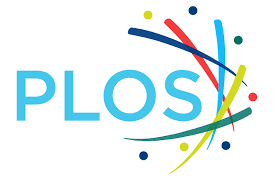 Franz, L., Viljoen, M., Askew, S., Brown, M., Dawson, G., Di Martino, J. M., ... & de Vries, P. J. (2024). Autism Caregiver Coaching in Africa (ACACIA): Protocol for a type 1-hybrid effectiveness-implementation trial. PLoS ONE, 19(1), e0291883.
Franz, L., Viljoen, M., Askew, S., Brown, M., Dawson, G., Di Martino, J. M., ... & de Vries, P. J. (2024). Autism Caregiver Coaching in Africa (ACACIA): Protocol for a type 1-hybrid effectiveness-implementation trial. PLoS ONE, 19(1), e0291883.
https://journals.plos.org/plosone/article?id=10.1371/journal.pone.0291883
This protocol paper describes the Autism Caregiver Coaching in Africa (ACACIA) study protocol. The study consists of a type 1 effectiveness-implementation hybrid design; assessor-blinded, group randomized controlled trial, to evaluate an adapted caregiver coaching intervention within the Western Cape Department of Education in South Africa. Participant enrolment started in April 2023. Estimated primary completion date is March 2027. The ACACIA trial will determine whether a cascaded task-sharing intervention delivered in an educational setting leads to meaningful improvements in communication abilities of autistic children, and identify implementation barriers and facilitators.
2023
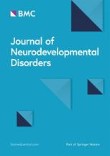 de Vries, P.J., Heunis, TM., Vanclooster, S. et al. International consensus recommendations for the identification and treatment of tuberous sclerosis complex-associated neuropsychiatric disorders (TAND). J Neurodevelop Disord 15, 32 (2023). https://doi.org/10.1186/s11689-023-09500-1
de Vries, P.J., Heunis, TM., Vanclooster, S. et al. International consensus recommendations for the identification and treatment of tuberous sclerosis complex-associated neuropsychiatric disorders (TAND). J Neurodevelop Disord 15, 32 (2023). https://doi.org/10.1186/s11689-023-09500-1
This paper describes the development of international consensus recommendations for the identification and treatment of TAND. These were developed by the TAND consortium as part of the TANDem Project and provides a systematic framework for families, clinicians and researchers to approach the identification and management of TAND for all people with TSC as well as recommendations for each of the seven natural TAND clusters.
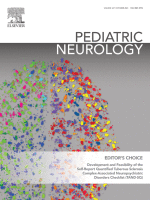 Tosca-Marie Heunis, Nola Chambers, Stephanie Vanclooster, Stacey Bissell, Anna W. Byars, Jamie K. Capal, Sebastián Cukier, Peter E. Davis, Magdalena C. de Vries, Liesbeth De Waele, Jennifer Flinn, Sugnet Gardner-Lubbe, Tanjala Gipson, J. Christopher Kingswood, Darcy A. Krueger, Aubrey J. Kumm, Mustafa Sahin, Eva Schoeters, Catherine Smith, Shoba Srivastava, Megumi Takei, Agnies M. van Eeghen, Robert Waltereit, Anna C. Jansen, Petrus J. de Vries (2023). Development and Feasibility of the Self-Report Quantified Tuberous Sclerosis Complex-Associated Neuropsychiatric Disorders Checklist (TAND-SQ), Pediatric Neurology, 147, 101-123. https://doi.org/10.1016/j.pediatrneurol.2023.07.001 0887-8994
Tosca-Marie Heunis, Nola Chambers, Stephanie Vanclooster, Stacey Bissell, Anna W. Byars, Jamie K. Capal, Sebastián Cukier, Peter E. Davis, Magdalena C. de Vries, Liesbeth De Waele, Jennifer Flinn, Sugnet Gardner-Lubbe, Tanjala Gipson, J. Christopher Kingswood, Darcy A. Krueger, Aubrey J. Kumm, Mustafa Sahin, Eva Schoeters, Catherine Smith, Shoba Srivastava, Megumi Takei, Agnies M. van Eeghen, Robert Waltereit, Anna C. Jansen, Petrus J. de Vries (2023). Development and Feasibility of the Self-Report Quantified Tuberous Sclerosis Complex-Associated Neuropsychiatric Disorders Checklist (TAND-SQ), Pediatric Neurology, 147, 101-123. https://doi.org/10.1016/j.pediatrneurol.2023.07.001 0887-8994
This paper describes the development and feasibility evaluation of a new self-report quantified checklist for Tuberous sclerosis complex - associated neuropsychiatric disorders (TAND) called the TAND-SQ. This was developed by the TAND consortium as part of the TANDem project and is available for download and use by the TSC community.
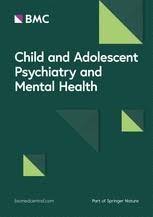 Swart, T.T., Davids, E.L. & de Vries, P.J. “A turn in the road, but still a rough journey” - Parent and child perspectives of outcomes after pre-adolescent inpatient psychiatric admission. Child Adolesc Psychiatry Ment Health 17, 103 (2023). https://doi.org/10.1186/s13034-023-00649-0
Swart, T.T., Davids, E.L. & de Vries, P.J. “A turn in the road, but still a rough journey” - Parent and child perspectives of outcomes after pre-adolescent inpatient psychiatric admission. Child Adolesc Psychiatry Ment Health 17, 103 (2023). https://doi.org/10.1186/s13034-023-00649-0
The study explored parent-child dyadic perspectives about their experiences of inpatient mental health admissions for pre-adolescents and perceived outcomes after admission. The majority of families found inpatient admission positive and helpful, and thematic analysis identified a number of functional variables that may predict outcome. However, positive outcomes were associated with ongoing difficulties over time, as indicated by the theme “a turn in the road, but still a rough journey”.
 Guler, J., Stewart, K. A., de Vries, P. J., Seris, N., Shabalala, N., & Franz, L. (2023). Conducting caregiver focus groups on autism in the context of an international research collaboration: Logistical and methodological lessons learned in South Africa. Autism, 27(3), 751-761. https://doi.org/10.1177/13623613221117012
Guler, J., Stewart, K. A., de Vries, P. J., Seris, N., Shabalala, N., & Franz, L. (2023). Conducting caregiver focus groups on autism in the context of an international research collaboration: Logistical and methodological lessons learned in South Africa. Autism, 27(3), 751-761. https://doi.org/10.1177/13623613221117012
In this article, we describe the research process we took to conduct focus group discussions with 22 caregivers of young autistic children living in Cape Town, South Africa. We specifically describe the lessons we learned in implementing these focus groups and provide recommendations aimed at how to best reduce logistical and methodological challenges moving forward to improve research conducted in similar low-resource contexts.
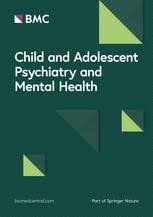 Rieder, A.D., Viljoen, M., Seris, N. et al. Improving access to early intervention for autism: findings from a proof-of-principle cascaded task-sharing naturalistic developmental behavioural intervention in South Africa. Child Adolesc Psychiatry Ment Health 17, 64 (2023). https://doi.org/10.1186/s13034-023-00611-0
Rieder, A.D., Viljoen, M., Seris, N. et al. Improving access to early intervention for autism: findings from a proof-of-principle cascaded task-sharing naturalistic developmental behavioural intervention in South Africa. Child Adolesc Psychiatry Ment Health 17, 64 (2023). https://doi.org/10.1186/s13034-023-00611-0
In this South African proof-of-principle pilot study, we set out to answer two questions about a 12-session cascaded task-sharing NDBI—whether the approach could be delivered with fidelity, and whether we could identify signals of change in child and caregiver outcomes. The results supported the potential of such approaches in low-resource contexts. Larger studies are needed to expand on the evidence-base and answer questions on intervention effectiveness and implementation outcomes.
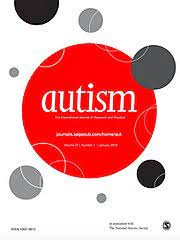 Zerihun, T., Kinfe, M., Koly, K. N., Abdurahman, R., Girma, F., Hanlon, C., de Vries, P. J., & Hoekstra, R. A. (2023). Non-specialist delivery of the WHO Caregiver Skills Training Programme for children with developmental disabilities: Stakeholder perspectives about acceptability and feasibility in rural Ethiopia. Autism, 0(0). https://doi.org/10.1177/13623613231162155
Zerihun, T., Kinfe, M., Koly, K. N., Abdurahman, R., Girma, F., Hanlon, C., de Vries, P. J., & Hoekstra, R. A. (2023). Non-specialist delivery of the WHO Caregiver Skills Training Programme for children with developmental disabilities: Stakeholder perspectives about acceptability and feasibility in rural Ethiopia. Autism, 0(0). https://doi.org/10.1177/13623613231162155
This study explored the acceptability and feasibility of the caregiver skills training programme facilitated by non-specialists in rural Ethiopia, where contextual factors such as poverty, stigma and low literacy may affect training delivery. Caregivers’ accounts showed that facilitation by non-specialists was acceptable; facilitators emphasised the importance of supervision throughout the programme. Participants indicated that the home visit and group training modalities were acceptable and feasible. These findings may have relevance to non-specialist delivery of the caregiver skills programme training and other parent-mediated interventions in low-resource contexts.
2022
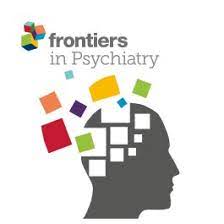 Pillay, S., Duncan, M., & de Vries, P. J. (2022). “We are doing the best we can to bridge the gap” - service provider perspectives of educational services for autism spectrum disorder in South Africa. Frontiers in Psychiatry, 13, 907093–907093. https://doi.org/10.3389/fpsyt.2022.907093
Pillay, S., Duncan, M., & de Vries, P. J. (2022). “We are doing the best we can to bridge the gap” - service provider perspectives of educational services for autism spectrum disorder in South Africa. Frontiers in Psychiatry, 13, 907093–907093. https://doi.org/10.3389/fpsyt.2022.907093
In this study, Pillay and colleagues performed a qualitative study of ten multi-sectorial ASD service provider interviews in the Western Cape Province to examine provider perspectives and proposed solutions to meet the educational needs of children with ASD. Provider perspectives fell into three categories: “bridging the gap across the spectrum and lifespan”, “gaps to bridge”, and “building bridges” with an overarching theme of “We're doing the best we can to bridge the gap". Participants provided ten key recommendations for service strengthening that may lead to contextually relevant innovations to meet the educational needs of children with ASD in the province.
 Franz, L., Howard, J., Viljoen, M., Sikich, L., Chandrasekhar, T., Kollins, S. H., Lee, L., Ndlovu, M., Sabatos-DeVito, M., Seris, N., Shabalala, N., Spanos, M., de Vries, P. J., & Dawson, G. (2022). Pragmatic adaptations of telehealth-delivered caregiver coaching for children with autism in the context of COVID-19: Perspectives from the United States and South Africa. Autism, 26(1), 270-275. https://doi.org/10.1177/13623613211022585
Franz, L., Howard, J., Viljoen, M., Sikich, L., Chandrasekhar, T., Kollins, S. H., Lee, L., Ndlovu, M., Sabatos-DeVito, M., Seris, N., Shabalala, N., Spanos, M., de Vries, P. J., & Dawson, G. (2022). Pragmatic adaptations of telehealth-delivered caregiver coaching for children with autism in the context of COVID-19: Perspectives from the United States and South Africa. Autism, 26(1), 270-275. https://doi.org/10.1177/13623613211022585
This short report details contextual considerations and pre-implementation pragmatic adaptations in two autism spectrum disorder clinical trials that include Early Start Denver Model–informed caregiver coaching in the United States and South Africa. By comparing and contrasting how implementation context informed the telehealth pivot in these two clinical trials in different hemispheres, we highlight equity considerations for adaption.
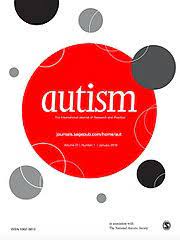 Pillay, S., Duncan, M., & de Vries, P. J. (2022). ‘We are doing damage control’: Government stakeholder perspectives of educational and other services for children with autism spectrum disorder in South Africa. Autism, 0(0). https://doi.org/10.1177/13623613221142111
Pillay, S., Duncan, M., & de Vries, P. J. (2022). ‘We are doing damage control’: Government stakeholder perspectives of educational and other services for children with autism spectrum disorder in South Africa. Autism, 0(0). https://doi.org/10.1177/13623613221142111
This study explored the perspectives of key government stakeholders on educational and other services for children with autism spectrum disorder in the Western Cape Province of South Africa and their proposed solutions to meet the needs of autistic children and their families. The overarching theme that emerged was ‘We are doing damage control’. Government stakeholders acknowledged that autism spectrum disorder services were falling between the ‘cracks’ caused by competing societal demands on government resources. Participants shared perspectives about autism spectrum disorder services in three categories: a cracked society, siloed service systems and gap-filling strategies. Findings from this study highlighted the need for collaborative efforts between government departments and civil society to develop a strategy for autism spectrum disorder in line with the World Health Organization resolution.
Schlebusch, L., Chambers, N., Rosenstein, D., Erasmus, P., WHO CST Team and de Vries, PJ (2022). Supporting caregivers of children with developmental disabilities: Findings from a brief caregiver well-bing programme in South Africa. Autism. https://doi.org/10.1177/13623613221133182
In this study, Dr Schlebusch and colleagues adapted the 3-session WHO Caregiver Skills Training (CST) caregiver wellbeing module, which focuses on supporting the wellbeing of caregivers of children with disabilities using principles of Acceptance and Commitment Therapy (ACT). A community participatory approach was used to adapt the module to be suitable to the South African context resulting in the "Well-Beans for Caregivers" programme, which was piloted with 10 caregivers in a low resource setting in South Africa. Results suggested that the programme was regarded as feasible and acceptable to the caregivers and may lead to improved caregiver well-being and mental health in community settings in South Africa.
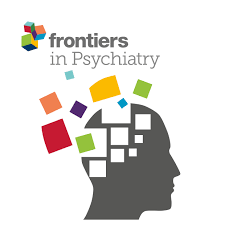 Heunis, T., Bissell, S., Byars, A. W., Capal, J. K., Chambers, N., Cukier, S., … de Vries, P. (2022). Empowering Families Through Technology: A Mobile-Health Project to Reduce the TAND Identification and Treatment Gap (TANDem). Frontiers in Psychiatry, 13 (February), 1–15.
Heunis, T., Bissell, S., Byars, A. W., Capal, J. K., Chambers, N., Cukier, S., … de Vries, P. (2022). Empowering Families Through Technology: A Mobile-Health Project to Reduce the TAND Identification and Treatment Gap (TANDem). Frontiers in Psychiatry, 13 (February), 1–15.
Dr Tosca Heunis and other members of the TAND consortium recently published the TANDem project protocol paper in Frontiers in Psychiatry. This paper describes the TANDem project led by Prof Petrus de Vries and Prof Anna Jansen. The TANDem project has three aims: AIM 1: Development and validation of a quantified, self-report TAND Checklist (TAND-SQ), built as a mobile app; AIM 2: Generation of consensus clinical guidelines for identification and treatment of TAND Clusters, to be incorporated as a toolkit into the app; AIM 3: Establishment of a global TAND Consortium through a range of networking, capacity-building and public engagement activities. Click here for the paper. For more information, see the TANDem website at https://tandconsortium.org
Pillay, S., Duncan, M. and de Vries, P. J. (2022) Who’s waiting for a school? Rates, socio-demographics, disability and referral profile of children with autism spectrum disorder awaiting school placement in the Western Cape Province of South Africa. Autism: the international journal of research and practice. [Online] 13623613211067324–13623613211067324.
This study is part of a larger study on education systems for children with autism spectrum disorder (ASD) in South Africa. Extending on Pillay, Duncan and de Vries (2021) study on the profile of children with ASD in the Western Cape education system this study reports on the profile of children with ASD waiting to gain access to education. In 2016 there were 940 children with ASD in schools in the province and 744 children waiting to get into schools. Thirty eight percent (38%) of compulsory school aged children waiting for schools were reported to be at home and not receiving any educational or other intervention while they waited. More than half the number of children had been waiting for schools for more than a year. Education systems strengthening to accommodate children with ASD in the education system as early as possible is proposed. Click here for more details.
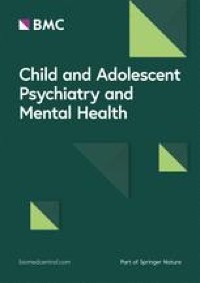
Mokitimi S, Schneider M, de Vries PJ. A situational analysis of child and adolescent mental health services and systems in the Western Cape Province of South Africa. Child and Adolescent Psychiatry and Mental Health. 2022 Dec;16(1):1-22.
Child and adolescent mental health services are very limited in low- and middle-income countries (LMIC). Knowledge of the hardware elements of the system (human resources, financing, medicines, technology, organisational structure, service infrastructure, and information systems) is necessary to move towards strengthening these services. This study uses the World Health Organization Assessment Instrument of Mental Health Systems (WHO-AIMS) version 2.2 of 2005 to examine these elements in the Western Cape Province of South Africa. Click here for more details.
 Vanclooster, S., Bissell, S., van Eeghen, A.M. et al. The research landscape of tuberous sclerosis complex–associated neuropsychiatric disorders (TAND)—a comprehensive scoping review. J Neurodevelop Disord 14, 13 (2022).
Vanclooster, S., Bissell, S., van Eeghen, A.M. et al. The research landscape of tuberous sclerosis complex–associated neuropsychiatric disorders (TAND)—a comprehensive scoping review. J Neurodevelop Disord 14, 13 (2022).
One of the goals of the ongoing TANDem project was to perform a scoping review of all TAND-related research that has ever been published in the peer-reviewed literature. The purpose of the review was to describe the landscape of TAND research to date, to identify key gaps in the TAND literature, and to make recommendations for future TAND research. Dr Stacey Bissell (Birmingham, UK) and Dr Stephanie Vanclooster (Brussels, Belgium) led the huge task of screening 2,841 publications to identify 230 relevant ones. Along with input from the rest of the TAND consortium, these papers were rated and reviewed according to ten research questions. We found a recent increase in TAND publications with more than half of all TAND research conducted after the coining of the term ‘TAND’ in 2012. However, we also identified large gaps in the literature, particularly studies that represent participants across the lifespan, LMIC research sites and effectiveness studies of nonâpharmacological interventions.For more information, click here to access the paper.
2021
Lord, C., Charman, T., Havdahl, A., Carbone, P., Anagnostou, E., Boyd, B., ... & McCauley, J. B. (2021). The Lancet Commission on the future of care and clinical research in autism. Lancet (London, England), S0140-6736.
Prof Petrus de Vries, from the Department of Psychiatry and Mental Health at the University of Cape Town (UCT), was a co-author on the influential Lancet Commission on autism that was published on 6 December 2021. The document outlined an ambitious and positive agenda for care and clinical research in the next 5 years. Prof de Vries said “it was a wonderful opportunity to be asked by Prof Catherine Lord, the lead commissioner, to join the team of autism experts from all over the world. We worked very hard between 2018 and the ultimate publication of the report in December 2021 and learnt a huge amount from one another!” Prof de Vries was particularly pleased that the Commission emphasized the vast needs of people who live in low- and middle-income countries, such as South Africa. “Many people don’t realize that close to 95% of people with autism live in poor countries around the world, and not in the USA, UK or Europe. This means that one of our key challenges in the next 5 years is to think how to expand research to understand and meet the needs of the culturally and linguistically diverse autism communities across the globe.” At UCT, Prof de Vries leads the Centre for Autism Research in Africa (www.cara.uct.ac.za), a highly interdisciplinary research group with a specific interest in people who live with autism and related neurodevelopmental and mental health disorders in Africa. “It was very rewarding to see that publications from a number of team members were included in the Lancet Commission. I take that as evidence of the global significance of our research!”, Prof de Vries said. The document can be accessed here.
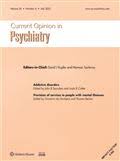
Simelane, S.R. and de Vries, P.J., 2021. Child and adolescent mental health services and systems in low and middle-income countries: from mapping to strengthening. Current Opinion in Psychiatry (2021). DOI: 10.1097/yco.0000000000000740.
The challenges in child and adolescent mental health services and systems (CAMHSS) in low and middle income countries (LMICs) are well described with little change over the past two decades. Fortunately, research has started to move from system 'mapping' towards systems 'strengthening'. In this paper, literature describing CAMHSS and systems strengthening research in LMICs over the last 18 months was reviewed using the WHO Assessment Instrument for Mental Health Systems (WHO-AIMS) framework. For more information, click here.
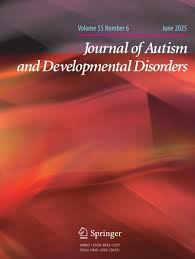 Kumm, A.J., Viljoen, M. & de Vries, P.J. The Digital Divide in Technologies for Autism: Feasibility Considerations for Low- and Middle-Income Countries. J Autism Dev Disord (2021). https://doi.org/10.1007/s10803-021-05084-8
Kumm, A.J., Viljoen, M. & de Vries, P.J. The Digital Divide in Technologies for Autism: Feasibility Considerations for Low- and Middle-Income Countries. J Autism Dev Disord (2021). https://doi.org/10.1007/s10803-021-05084-8
Digital technologies have the potential to empower individuals with autism and their families. The COVID-19 pandemic emphasized and accelerated the drive towards technology for information, communication, training, clinical care and research, also in the autism community. However, 95% of individuals with autism live in low- and middle-income countries (LMIC) where access to electricity, internet and the ever-increasing range of digital devices may be highly limited. In this article, Kumm and colleagues evaluated the feasibility of six emerging technologies for autism spectrum disorders, and reflected on key considerations for implementation in LMIC contexts to ensure that we do not inadvertently widen the pre-existing digital divide. Click here for more details.
Viljoen M, Mahdi S, Shelly J, de Vries PJ. Parental perspectives of functioning in their children with autism spectrum disorder: A global scoping review. Autism. 2021;25(1):176-198.
No reviews to date have summarized the views of parents on the functional challenges and/or strengths of their children with autism spectrum disorder. In this scooping review Marisa Viljoen and colleagues identify and collate global results to provide a broad description of parental perspective of functioning. Results are summarised using the International Classification of Functioning Disability and Health–Child and Youth version framework.Click here for more details.
Pillay S, Duncan M, de Vries PJ. Autism in the Western Cape province of South Africa: Rates, socio-demographics, disability and educational characteristics in one million school children. Autism. May 2021
This study by Sarosha Pillay, Madeleine Duncan, and Prof Petrus de Vries is the first to inform the rates, distribution and profile of needs of children with autism spectrum disorder (ASD) in a South African education system. The authors performed a comprehensive database search of all children with ASD in the formal education system in the Western Cape and compared the findings with population demographic expectations of the province. ASD and co-occurring conditions were identified at lower rates than expected with a disproportionate representation of self-reported race and language of the ASD sample compared to the Western Cape demographics. The majority of children with ASD attended special schools in urban areas. Strengthening of education systems for children with ASD in South Africa is proposed. The article can be accessed here.
2020
Liezl Schlebusch, Nola J. Chambers, John-Joe Dawson-Squibb, Michal Harty, Lauren Franz, Petrus J. de Vries, Challenges and opportunities of implementing early interventions for autism spectrum disorders in resource-limited settings: A South African example, Starting At the Beginning, 10.1016/B978-0-12-819749-3.00005-1, (99-132), (2020).
Improving access to care for young children with autism and their families, particularly those living in resource-limited settings, is a complex challenge that requires innovative solutions and multi-sectoral action. The authors offer a new approach to tackle the complex challenge by considering five fundamental aspects - selecting effective interventions, ensuring effective implementation, establishing an understanding of the local context and setting, being guided by a deep knowledge of the intervention beneficiaries, and using a pragmatic evaluation approach.
While the authors focus on work done in South Africa and on the African continent, the chapter should be of direct relevance to clinicians, researchers and policy-makers who work in other low- and middle- income countries, other resource-limited settings, and in culturally diverse contexts. Click here for more information.
2019
Viljoen M, Mahdi S, Griessel D, Bölte S, de Vries PJ. Parent/caregiver perspectives of functioning in autism spectrum disorders: A comparative study in Sweden and South Africa. Autism. 2019;23(8):2112-2130.
Functional outcomes in Autism Spectrum Disorder can be highly variable due to heterogeneous nature of autism spectrum disorder and its interaction with environmental factors. In this paper Marisa Viljoen and colleagues compare parent/caregiver perceptions of functioning in two divergent countries that participated in the International Classification of Functioning Disability and Health (ICF) Core Set for Autism Spectrum Disorder development study. Click here for more details.
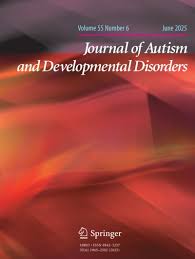 Dawson-Squibb JJ, de Vries PJ. Developing an Evaluation Framework for Parent Education and Training in Autism Spectrum Disorder: Results of a Multi-stakeholder Process. J Autism Dev Disord. 2019 Nov;49(11):4468-4481.
Dawson-Squibb JJ, de Vries PJ. Developing an Evaluation Framework for Parent Education and Training in Autism Spectrum Disorder: Results of a Multi-stakeholder Process. J Autism Dev Disord. 2019 Nov;49(11):4468-4481.
Despite the need for parent education and training programmes in autism spectrum disorder (ASD), there is no generally-accepted evaluation framework to select programmes for different settings. Here, the authors, John-Joe Dawson-Squibb and Petrus de Vries generated an evaluation framework using a multi-stakeholder, implementation science approach. Purposive sampling identified ASD experts, implementation/health systems experts, and parents/carers of individuals with ASD. A consensus-building stakeholder workshop with 14 stakeholders and thematic analysis was used to generate themes and components of the framework. Main themes included ‘Outcomes’ (parent, child, family and community), ‘Processes and Procedures’ (accessibility, acceptability, psychological process, and referral pathways) and ‘Implementation Landscape’ (sustainability, scalability, integration and coordination, and monitoring and evaluation). The authors proposed that the evaluation framework and Evaluation Framework Checklist generated could guide clinicians, researchers and policy-makers. The article can be accessed here
Makombe CBT, Shabalala N, Viljoen M, Seris N, de Vries PJ, Franz L. Sustainable implementation of early intervention for autism spectrum disorder through caregiver coaching: South African perspectives on barriers and facilitators. Pediatr Med. 2019 Aug;2:39.
A lack of specialists, and insufficient infrastructure and funding to scale early interventions for autism spectrum disorder (ASD) characterize low-resource settings. Integration of early intervention methods that utilize non-specialists, and involve caregivers, into existing systems of care, offers the best hope to address such unmet needs. In South Africa, a caregiver coaching intervention, informed by principles of the Early Start Denver Model (ESDM) was adapted for delivery by non-specialist Early Childhood Development (ECD) practitioners. This study explored perceived barriers and facilitators to sustainable implementation of this approach. Click here for more details.
Kaminer, D., & Shabalala, N. (2019). Developing a student mental health policy for a South African university: Consultation, contestation and compromise. South African Journal of Higher Education, 33(5), 196-212.
Given high rates of student mental health difficulties globally, the need for universities to have a student mental health policy has been increasingly recognised. In the South African context, such policies must not only balance the mental health needs of students with the realistic constraints of university resources in a time of austerity, but also engage with complexities posed by the Global North foundations of the fields of psychology and psychiatry and the systemic determinants of mental health. This article describes the development of a student mental health policy at a South African university, with a focus on points of contestation that emerged out of a broad-based institutional consultation process. Areas of contestation included the scope of university support for student mental health, defining mental health difficulties, the use of a disability framework for mental health, and processes of verification. All of these were embedded within a broader tension between health and social justice discourses. The compromises that were designed to balance these complexities within the student mental health policy are discussed, and reflections are offered that may inform the development of student mental health policies at other South African universities. Click here for more details.
Ramseur, K., de Vries, PJ, Guler, J., Shabalala, N. & Franz, L. (2019). Caregiver descriptions of joint activity routines with young children with autism spectrum disorder in South Africa. Pediatric Medicine, Vol 2.
Coaching caregivers to deliver Naturalistic Developmental Behavioral Intervention (NDBI) strategies to their young child with autism spectrum disorder (ASD) could help address the provider capacity barrier in sub-Saharan Africa. However, the behavioral and developmental research that underpins NDBIs is overwhelmingly drawn from high resource settings. Therefore, our understanding of joint activity routines, including play and family routines in which NDBI strategies are embedded, may have limited applicability in low resource, culturally diverse environments. Important questions remain on how to adapt NDBIs to be relevant in the family lives in these settings. This study aimed to elicit descriptions of joint activity routines from caregivers of young children with ASD in South Africa, to understand whether an NDBI-informed caregiver coaching could ‘fit’ within the multicultural, multilingual South African context. Results from focus groups with caregivers suggest that South African caregivers of young children with ASD DO use joint activity routines to engage their children and teach them new skills, thus suggesting a degree of ‘fit’ between South African caregiver-child interactions and an NDBI-informed caregiver coaching approach. This article can be accessed here.
Hampton LH, Harty M, Fuller EA, Kaiser AP. Enhanced milieu teaching for children with autism spectrum disorder in South Africa. Int J Speech Lang Pathol. 2019 Dec;21(6):635-645.
Efficient and effective interventions are required to meet the communication needs of children with autism spectrum disorders (ASDs) in South Africa. This multiple baseline study examined the effects of therapist-implemented enhanced milieu teaching (EMT) on the diversity and frequency of spoken language of three children with ASD in South Africa. A moderate functional relation was demonstrated between the introduction of EMT and increases in (1) the number of different words and (2) the number of spontaneous utterances used by each participant. Some evidence of generalisation to novel partners and contexts was observed. We concluded that EMT may be effective for improving communication in South African children with ASD. Implications for clinical practice and cultural and linguistic adaptations are discussed. Click here for more details.
2018
Hohlfeld ASJ, Harty M, Engel ME. Parents of children with disabilities: A systematic review of parenting interventions and self-efficacy. Afr J Disabil. 2018 Oct 17;7:437.
There is increasing evidence that early intervention has positive outcomes for parents of children with neurodevelopmental disabilities. Parental self-efficacy has been used as an outcome measure in some empirical studies; however, there is a lack of evidence of the impact of parent training programmes on parenting self-efficacy beliefs. In this systematic review, we set out to assess the effectiveness of parenting interventions to increase parental self-efficacy levels in parents of young children with neurodevelopmental disabilities. We found that parent training programmes are effective in increasing parental self-efficacy in parents of children with neurodevelopmental disabilities and that parents of children younger than 5 years demonstrated the highest increase in levels of parental self-efficacy after parenting interventions. Furthermore, this review showed that psychologists and other healthcare practitioners are successfully able to implement training programmes that enhance parenting self-efficacy. More details can be accessed here.
Franz, L., Adewumi, K., Chambers, N., Viljoen, M., Baumgartner, J. N., & de Vries, P. J. (2018). Providing early detection and early intervention for autism spectrum disorder in South Africa: stakeholder perspectives from the Western Cape province. Journal of child and adolescent mental health, 30(3), 149–165. https://doi.org/10.2989/17280583.2018.1525386
We set out to examine key stakeholder perspectives on early detection and intervention for autism spectrum disorder (ASD) in South Africa. We focused on eight senior management level stakeholders in the Western Cape province, two each from government’s Health, Education, and Social Development, and the non-profit sector. The National Integrated Early Childhood Development Policy was identified as the most relevant to early detection and intervention. This policy, however, is not ASD specific. This lack of specificity is in keeping with an emerging theme: ASD was only seen within the context of other developmental disabilities, particularly by Health and Social Development. Specific ASD early detection and intervention may not currently align with Health and Social Development departmental goals even though these departments are primarily responsible for identifying and providing services and financial support to young children with ASD. Increased ASD knowledge and local South African statistics on prevalence, burden and associated costs may alter this approach. At this time, ASD early intervention may be more closely aligned with Education department goals. Click here for more details.
Chambers, N, de Vries, PJ, Delehanty, A & Wetherby, AM (2018). Feasibility of utilizing autism navigator® for primary care in South Africa. Autism Research, 11, 11, 1511-1521.
Professionals in lowand middle income countries urgently need training to recognise red flags of autism in very young children. Autism Navigator® for Primary Care is a web-based course designed to increase awareness of red flags of ASD in the second year of life and thus promote earlier detection and referral for intervention. It contains extensive video illustrations that offer rapid access to multiple exemplars of ASD red flags. The feasibility of utilising the Autism Navigator® for Primary Care course was explored with 62 South African professionals. After training, professionals' knowledge of early red flags improved, and most reported the course important and needed in South Africa. They found the web-based design mostly acceptable, practical, and culturally applicable. We propose that, with some modifications, this training has the potential to lower the age of detection of autism spectrum disorders. For further details click here.
Mokitimi, S., Schneider, M. & de Vries, P.J. Child and adolescent mental health policy in South Africa: history, current policy development and implementation, and policy analysis. Int J Ment Health Syst 12, 36 (2018).
Mental health problems represent the greatest global burden of disease among children and adolescents. There is, however, lack of policy development and implementation for child and adolescent mental health (CAMH), particularly in low- and middle-income countries (LMICs) where children and adolescents represent up to 50% of populations, including South Africa. This study by Stella Mokitimi, Marguerite Schneider and Petrus de Vries, sought to examine the history and current state of CAMH policy development and implementation in South Africa, and to perform a systematic analysis of all available CAMH service-related policies. We found that in spite of South Africa’s upper-middle income status, there were no publically-available provincial CAMH policy documents. There is an urgent need to develop and implement CAMH policies in South Africa and other LMICs. Further research will be required to identify and explore the barriers to policy development and implementation, and to service development and scale-up in CAMH. Further details can be accessed here.
Dawson-Squibb J-J, Davids EL, de Vries PJ. Scoping the evidence for EarlyBird and EarlyBird Plus, two United Kingdom-developed parent education training programmes for autism spectrum disorder. Autism. 2019;23(3):542-555.
EarlyBird and EarlyBird Plus are parent education and training programmes designed by the UK National Autistic Society in 1997 and 2003, and been delivered to more than 27,000 families in 14 countries. In the absence of any previous comprehensive review, John-Joe Dawson-Squibb, Eugene Davids, and Petrus de Vries performed a scoping review of all peer-reviewed publications on the two programmes. The goal of the review was to determine the level and extent of evidence for such widely used programmes. The review explored the context, study populations, design, outcome measures, and where possible, parental perceptions, parental or child changes, and programme feasibility. The article can be accessed here.
Guler J, de Vries PJ, Seris N, Shabalala N, Franz L. The importance of context in early autism intervention: A qualitative South African study. Autism. 2018;22(8):1005-1017.
A number of studies in lower-and middle-income countries have called for greater caregiver involvement in intervention delivery as a cost effective means of providing services and addressing the capacity barrier. However, the majority of caregiver coaching interventions have been developed in high-income settings and need to be adapted to enhance ‘fit’ with the local setting. In a recent publication Jessy Guler, Petrus de Vries, Noleen Seris, Nokuthula Shabalala and Lauren Franz assessed which contextual factors caregivers of young children with ASD in South Africa deemed important in early intervention. A broader goal of this publication was to inform the process of adaptation of caregiver coaching early ASD intervention for new contexts. The article can be accessed by clicking here.
2017
Smith L, Malcolm-Smith S, de Vries PJ. Translation and cultural appropriateness of the Autism Diagnostic Observation Schedule-2 in Afrikaans. Autism. 2017;21(5):552-563.
Lesia Smith from the Centre of Autism Research in Africa (CARA) translated and examined the cultural appropriateness of the Autism Diagnostic Observation Schedule-2 in Afrikaans. The findings from her study “highlighted unique aspects of the language (‘Kaaps’) that need to be considered during Autism Diagnostic Observation Schedule-2 administration. The social interaction demands of the Autism Diagnostic Observation Schedule-2 appeared appropriate, and sufficient familiarity with Autism Diagnostic Observation Schedule-2 materials and activities was found to support the use of the Autism Diagnostic Observation Schedule-2”. To access the full-text of her manuscript in Autism click here.
Franz, L., Chambers, N., von Isenburg, M. and de Vries, P.J. (2017), Autism spectrum disorder in sub-Saharan Africa: A comprehensive scoping review. Autism Research, 10: 723-749.
Autism Spectrum Disorder (ASD) is considered a global public health concern, yet little is known about ASD in sub-Saharan Africa. In a recent review by Lauren Franz, Nola Chambers and Petrus de Vries from the Centre of Autism Research in Africa aimed to address the gap in our understanding of ASD in sub-Saharan Africa, and recommends “a substantial need for large-scale clinical, training and research programmes to improve the lives of people who live with ASD”. The review published in Autism Research can be accessed by clicking here.
Chambers NJ, Wetherby AM, Stronach ST, Njongwe N, Kauchali S, Grinker RR. Early detection of autism spectrum disorder in young isiZulu-speaking children in South Africa. Autism. 2017;21(5):518-526.
A great need exists for culturally appropriate tools, particularly in detecting symptoms of Autism Spectrum Disorder (ASD). Nola Chambers and some of her colleagues examined early detection of ASD in isiZulu-speaking children in South Africa. The study was published in Autism and can be accessed by clicking here.
For full details about publication, please see ResearchGate profiles of individual staff members.

